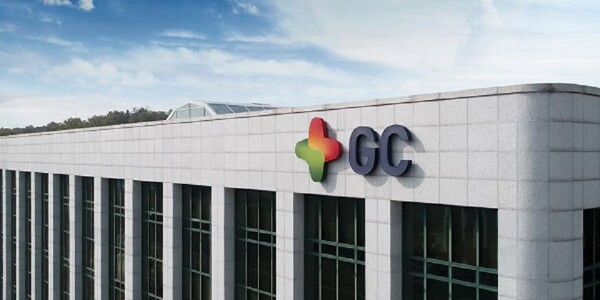GC Biopharma, a Korean biopharmaceutical firm, said on Tuesday it secured approval for the world’s first recombinant anthrax vaccine that doesn’t rely on live or cultured bacteria—making Korea the third country to achieve domestic anthrax vaccine production and marking its 39th locally developed new drug.
With the approval, Korea joins the U.S. and U.K. as one of the few nations capable of producing anthrax vaccines domestically.

Dubbed Barythrax, GC Biopharma said the vaccine is stockpile-ready and designed for bioterror preparedness, using genetically engineered protective antigens to trigger immunity without the safety risks tied to older, culture-based vaccines.
“This is the first genetically engineered anthrax vaccine to be successfully commercialized worldwide,” Korea Disease Control and Prevention Agency (KDCA) said in a statement, calling the move a milestone in securing national supply and ending reliance on imports.
Barythrax's greenlight caps nearly three decades of development, dating back to 1997 when health authorities first screened early candidates. GC Biopharma later joined as a partner to scale development, run clinical trials and submit the final application in October 2023.
The vaccine was evaluated under Korea’s emergency response act, which permits animal studies in place of phase 3 human trials for high-risk pathogens. In phase 2 studies, healthy adults produced strong neutralizing antibody responses with no serious side effects. Preclinical data showed durable antibody levels for at least six months post-dosing, with high survival rates in animals exposed to anthrax.
Anthrax remains classified as a tier-one notifiable disease in Korea, with known risks of aerosol transmission and environmental persistence. Until now, the country relied entirely on imports for its anthrax vaccine supply.
Barythrax flips that script. GC Biopharma said it will manufacture the vaccine at existing facilities and can ramp up production rapidly in a national emergency. The company also plans to pursue international markets, positioning Barythrax as a next-gen alternative to vaccines that use live bacteria or residual toxins.
“Beyond reducing costs, this approval locks in supply chain stability and sharpens our ability to respond quickly to biological threats,” KDCA Commissioner Jee Young-mee said.
Related articles
- GC Biopharma’s US affiliate Curevo pulls in $110 mil. to challenge GSK’s Shingles vaccine
- GC Wellbeing enters BTX market with $30 million IniBio deal, challenging industry leaders
- GC Biopharma offers lysosomal storage disorder drug development updates at WORLD Symposium 2025
- GC Biopharma’s Hunterase ICV gets orphan drug designation
- GC halts production plan for locally-developed BCG vaccine after MFDS rejection
- EuBiologics to lead Korea's $356 mil. mRNA vaccine project for future pandemics
- GC Cell taps new antibody from Korean biotech to boost CAR-T, CAR-NK programs
- GC Biopharma returns to profit in Q1 on blood product gains, export growth
- GC Biopharma aims to sell $100 mil. Alyglo in US by 2025
- GC Biopharma wins FDA nod for 6th US plasma center in California
- GC Biopharma ends reliance on US anthrax shots by making its own

